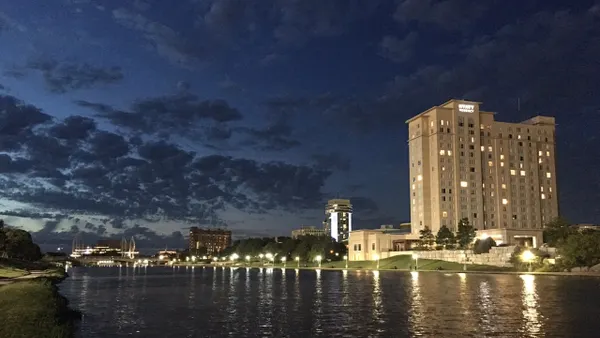Bank of America will pay $1.84 billion to bond insurer Ambac Financial Group to settle the last of a long-standing string of lawsuits tied to residential mortgage-backed securities born from the 2008 financial crisis, the companies announced Friday.
The bank will incur a $354 million third-quarter pretax expense from the settlement, to be reported at earnings Oct. 17, it said in a securities filing.
Ambac had sought roughly $3 billion in damages in multiple claims.
“Ambac is very pleased to have reached this settlement with Bank of America," Claude LeBlanc, Ambac's CEO, said in a statement. The company expects to see a $390 million windfall in its third- and fourth-quarter earnings after its subsidiary repays more than $1.42 billion in debt that had been used to pay the claims and fund operations.
Ambac, between 2004 and 2006, insured securities backed by loans underwritten by Countrywide Financial, which Bank of America bought in 2008. Ambac claimed 80% of the loans failed to meet proper underwriting standards or otherwise violated insurance agreements — thus, passing the risk onto the insurer. Further, Ambac said Bank of America failed to repurchase the loans as required.
Bank of America has already paid more than $50 billion to resolve regulatory investigations and court battles sprouting from the Countrywide deal.
An attorney for Ambac, Michael Carlinsky, said last month during opening arguments in a case against Bank of America that Countrywide Financial was the “worst of the worst” in underwriting securities backed by bad loans prior to the crisis, and that the company “ran a factory where it literally churned out billions and billions of dollars in bad mortgage loans.” Friday’s settlement ends that trial.
Though Bank of America’s crisis-era RMBS headaches are over, Ambac has yet to settle its RMBS claims against Nomura for fraud and breach of contract claims.
“There are also a number of RMBS cases remaining brought by RMBS trustees against the likes of Credit Suisse, Nomura and a few others though Credit Suisse and Nomura have the most remaining exposure in those we think,” Bloomberg Intelligence Senior Litigation Analyst Elliott Stein said in an email to Banking Dive.
Stein said he views the Ambac-Bank of America settlement as good for the insurer, “but not great,” noting that the recovery it received with the settlement was a notably smaller percentage than the RMBS settlement MBIA got against Credit Suisse in 2021.
“We think Ambac's lower recovery percentage reflected a decision by New York's high court this past March favorable to Credit Suisse and that helps defendant banks in these cases,” Stein said. “That decision will likely have an impact on the other remaining RMBS cases too, giving the defendant banks some negotiating leverage to reduce anticipated settlement amounts.”
Bank of America, meanwhile, has been on the hook for a slew of penalties this year. The Office of the Comptroller of the Currency and the Consumer Financial Protection Bureau hit it with a one-two punch — $125 million and $100 million fines respectively — in July for mistakenly freezing pandemic benefit funds. The bank has also agreed to pay the Securities and Exchange Commission (SEC) and the Commodity Futures Trading Commission (CFTC) $225 million for failing to monitor the use of unauthorized messaging apps.
Bank of America was among 11 banks fined a total of $1.8 billion last month for what regulators called “pervasive off-channel communication.”













